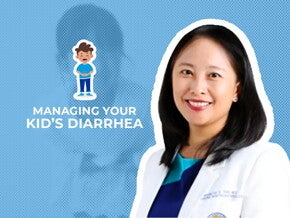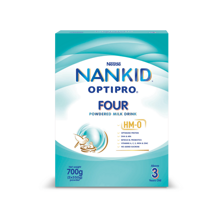
Understanding Research and Clinical Trials
By Maria Katrina Florcruz, MD, DPPS
New discoveries in science and nutrition pave way for better health and growth of children. From daily health practices to food choices, science serves as a guide in providing optimal nourishment for children.
What are clinical trials?
Have you ever wondered how scientists and researchers uncover breakthroughs in health? New tests and treatments are usually evaluated through research. Clinical trials evaluate the safety and effects of medical treatment, drugs, devices, or procedures on human health outcomes.1
Clinical trials help researchers understand if a new treatment is more effective and safer than the current standard of treatment. Trials also verify how to further improve quality of life and overall health based on current knowledge.2
For example, results of previous research have already shown that the body’s immune response can be supported through exposure to good microbes called probiotics. Several clinical trials were then conducted to further verify how to enhance the body’s immunity and its response to infections.2 Through these clinical trials, it was proven that probiotic Bifidobacterium lactis Bb12 can help increase antibody production in the gut by up to 200%.3
How does a clinical trial work?
Clinical trials are thoroughly designed and reviewed before they are even started. It is led by a principal investigator, often a medical doctor, and includes a team of healthcare professionals. It can take place in many settings like hospitals, communities, clinics, or universities. 1,4
The research plan outlines who can participate in the study and has passed the eligibility criteria based on specified characteristics. Informed consent is explained and signed by the participants before joining a study. The informed consent provides the participants with information about the clinical trial, the risks, and potential benefits. It also helps them decide if they will continue to participate or not.1,4
The study can run for months to years, depending on the design. It has four different phases, and every phase goes through stringent evaluation. At different phases, the intervention is tested and verified for efficacy and safety.5
- In Phase I, a new drug or intervention is tested in a small group of people to check for safety and side effects.
- In Phase II, the researchers try to understand how the treatment works for a particular illness or health condition.
- In Phase III, the new treatment is compared with the standard treatment. The dosage and combination of treatment are also determined at this stage.
- In Phase IV, the intervention is tried on the study participants. It further checks for side effects and its effectivity.
What are the misconceptions on clinical trials?
There are several myths about what clinical trials. Here are some examples:
- Myth 1: Only adults can participate in clinical trials6
Different ages, sex, race, and ethnicities may participate in trials. Children may participate in clinical trials with proper permission from their legal guardian. The research team can also explain the trial to the child and ask for a written consent if the child is mature enough. - Myth 2: Clinical trials use new and unproven medications, hence unsafe7
While the trial involves some risks, ethical and legal codes of medical practice will be applied so that the participants are protected.
Clinical trials are important testament for scientific evidence
A new breakthrough requires scientific proof of safety and effectiveness. Well-conducted trials undergo thorough planning and years of research to provide reliable evidence of positive effect to health and well-being. Through clinical trials, researchers are constantly finding new ways to improve the lives and health of people and children everywhere.5
References:
- 1.WHO. Clinical Trials. Available from: https://www.who.int/health-topics/clinical-trials#tab=tab_1. Accessed July 11, 2022.
- 2. National Institute of Aging. What Are Clinical Trials and Studies? Available from: https://www.nia.nih.gov/health/what-are-clinical-trials-and-studies. Accessed July 11, 2022.
- 3. Holscher HD, et al. Bifidobacterium lactis Bb12 Enhances Intestinal Antibody Response in Formula-Fed Infants: A Randomized, Double-Blind, Controlled Trial. Journal of Parenteral and Enteral Nutrition. 2012;36(1):106S-117S.
- 4. US National Library of Medicine Resource Page. 2019. Learn About Clinical Studies. Available from: https://clinicaltrials.gov/ct2/about-studies/learn. Accessed July 11, 2022.
- 5. WebMD Resource Page. Clinical Trials: A Guide. 2022. Available from: https://www.webmd.com/a-to-z-guides/clincial-trial-guide-patients. Accessed July 11, 2022.
- 6. Cedars Sinai Resource Page. 2018. The Truth About Clinical Trials: Myths and Facts. Available from: https://www.cedars-sinai.org/blog/clinical-trials-myths-and-facts.html. Accessed July 11, 2022.
- 7. Allergy and Asthma Network. 5 Myths About Participating In Clinical Trials. Available from: https://allergyasthmanetwork.org/news/myths-about-participating-clinica…. Accessed July 11, 2022.


















